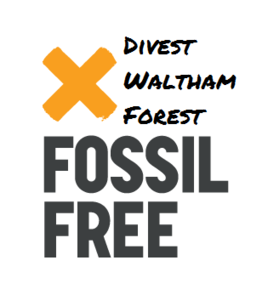Climate change is the greatest challenge humanity has encountered. Warming in excess of 2°C will have catastrophic consequences for the whole planet [1]. If global warming is to be limited to 2°C, a level already considered dangerous, up to 80% of known carbon reserves must be left in the ground [2]
The fossil fuel industry currently holds vast carbon reserves, which, if burnt, would result in emissions 5 times larger than what it is deemed to be safe [3]. All available evidence suggests that fossil fuel companies intend to burn the reserves within their control [4]. In addition, companies such as Shell are actively trying to discover new reserves, often in environmentally sensitive regions [5].
Research conducted by Carbon Tracker shows that there has been an over-valuation of fossil fuel reserves held by fossil fuel companies. 2/3 of these fossil fuels must remain in the ground if countries are to meet internationally agreed targets. These fossil fuels are, in effect, unburnable, so therefore worthless, which will lead to massive market losses. This is the “Carbon Bubble”. [6]
Fossil fuel-free investments are now outperforming more conventional fossil fuel investments. According to recent reports, fossil fuel-free investments “earned an average return of 1.2% more a year over the last five years” [7] when compared with fossil fuel investments.
Waltham Forest Council exists to serve the people of the borough, and it should therefore acknowledge the significant risks that fossil fuel investments pose to local residents' financial security and future quality of life. The council should therefore take a moral, political and economic stand by divesting its money from fossil fuel companies and choosing investments less at risk from climate change legislation and more compatible with the local community’s values.
Waltham Forest Council should use its money to reinvest in, and support development of, solutions to climate change. As Waltham Forest Council wishes to maximise its return on investment, there are many ethical (and fossil fuel-free) investment options that provide excellent financial returns.
Divesting its money away from fossil fuels would make a powerful statement that the fossil fuel industry is morally and economically unviable, and that the people of Waltham Forest wish to support an alternative, sustainable energy future.
By divesting from fossil fuels, Waltham Forest will join public institutions such as the British Medical Association, London School of Hygiene & Tropical Medicine, Bristol City Council, Oxford City Council, and the Universities of Bedfordshire, Edinburgh, Glasgow, Oxford, and Warwick in leading by example to help create a sustainable future for the citizens of Waltham Forest and beyond. [8]
Let's make Waltham Forest fossil-fuel free, and together, we can send a signal that we are ready to shift to an economy powered by renewable energy.
References:
1.
http://www.ipcc.ch/pdf/assessment-report/ar5/syr/SYR_AR5_FINAL_full.pdf
2.
http://www.nature.com/nature/journal/v517/n7533/full/nature14016.html
3.
http://www.carbontracker.org/wp-content/uploads/2014/09/Unburnable-Carbon-Full-rev2-1.pdf
4.
http://www.carbontracker.org/wp-content/uploads/2014/09/Unburnable-Carbon-Full-rev2-1.pdf
5.
http://www.shell.com/global/future-energy/arctic/exploration-production.html
6.
http://www.theguardian.com/environment/2013/apr/19/carbon-bubble-financial-crash-crisis &
http://www.carbontracker.org/wp-content/uploads/2014/09/Unburnable-Carbon-Full-rev2-1.pdf
7.
http://www.theguardian.com/environment/2015/apr/10/fossil-fuel-free-funds-out-performed-conventional-ones-analysis-shows
8.
http://gofossilfree.org/commitments/


